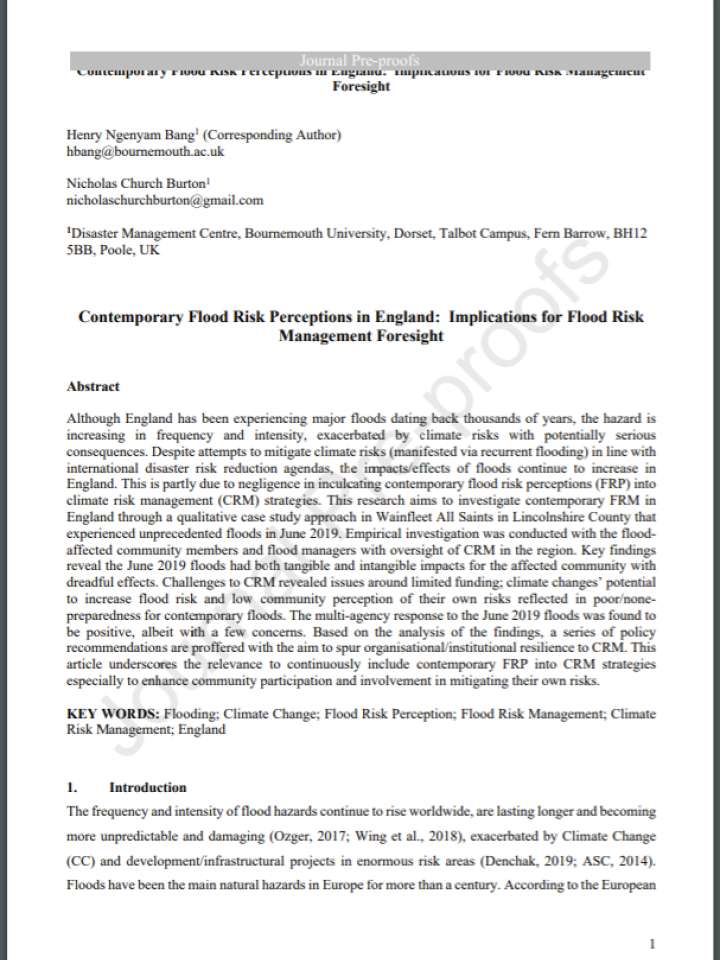Contemporary flood risk perceptions in England: implications for flood risk management foresight
This research aims to investigate contemporary flood risk management (FRM) in England through a qualitative case study approach in Wainfleet All Saints in Lincolnshire County that experienced unprecedented floods in June 2019. Although England has been experiencing major floods dating back thousands of years, the hazard is increasing in frequency and intensity, exacerbated by climate risks with potentially serious consequences. Despite attempts to mitigate climate risks (manifested via recurrent flooding) in line with international disaster risk reduction agendas, the impacts/effects of floods continue to increase in England. This is partly due to negligence in inculcating contemporary flood risk perceptions (FRP) into climate risk management (CRM) strategies.
Key findings reveal the June 2019 floods had both tangible and intangible impacts for the affected community with dreadful effects. Challenges to CRM revealed issues around limited funding; climate changes’ potential to increase flood risk and low community perception of their own risks reflected in poor/none-preparedness for contemporary floods. The multi-agency response to the June 2019 floods was found to be positive, albeit with a few concerns. This article underscores the relevance to continuously include contemporary FRP into CRM strategies especially to enhance community participation and involvement in mitigating their own risks.
Explore further
